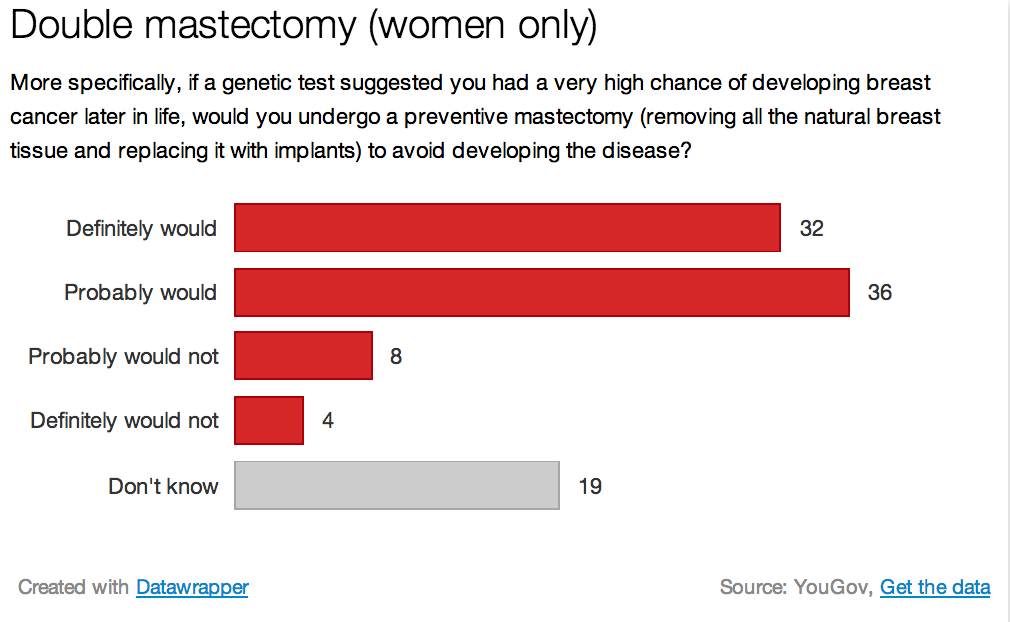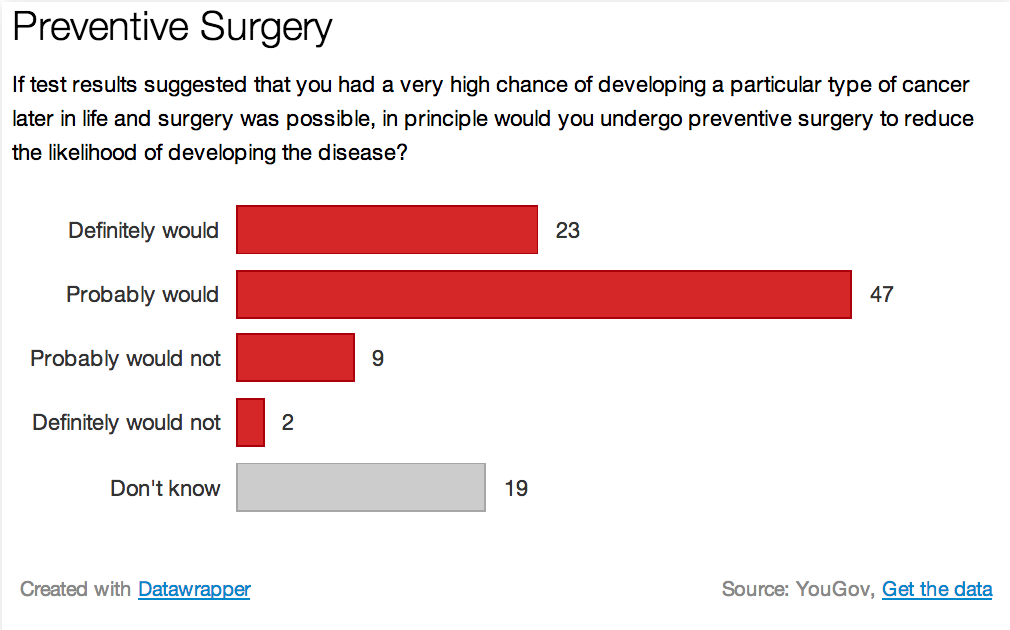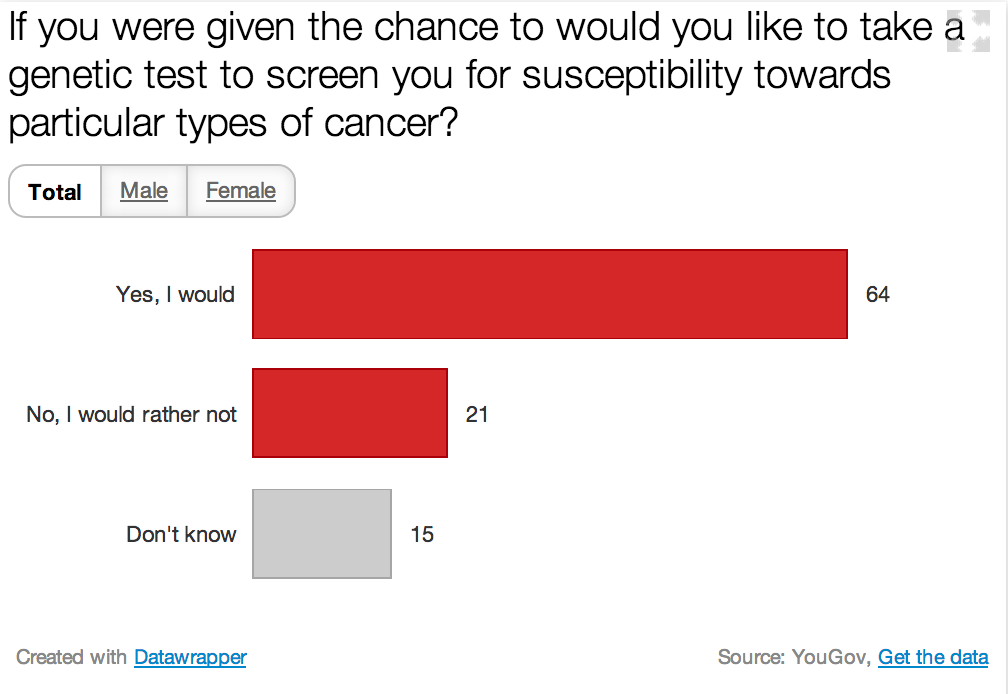 Almost seven out of every ten women say they would undergo a preventive double mastectomy if tests indicated they were at a high risk of breast cancer
Almost seven out of every ten women say they would undergo a preventive double mastectomy if tests indicated they were at a high risk of breast cancer
A new YouGov poll finds that nearly seven in 10 women in Britain would have a double mastectomy if genetic tests suggested they had a very high chance of developing breast cancer.
On Tuesday, Hollywood actress Angelina Jolie announced in a widely reported editorial for the New York Times titled “My Medical Choice” that she had undergone a double mastectomy as a preventive measure against breast cancer. Jolie said that doctors estimated that she “had an 87 percent risk of breast cancer and a 50 percent risk of ovarian cancer” due to a “faulty” gene, BRCA1, which increases cancer risk.
68% of women say they would have all natural breast tissue removed and replaced with implants if genetic tests suggested a very high probability of developing breast cancer.

The YouGov survey also found that in identical proportions British women and men would undergo preventive surgery if tests suggested they were at a very high risk of a particular cancer. 70% of Britons say they would in principle undergo surgery to prevent the development of a cancer if tests suggested there was a very high chance of it developing, including 70% of men and 70% of women.

Asked if they would have genetic tests to screen for susceptibility towards particular types of cancer, and 64% of British adults say they would, including 62% of women and 66% of men.

One in five (21%) worry that there is a type of cancer they are particularly susceptible to because of family medical history.

